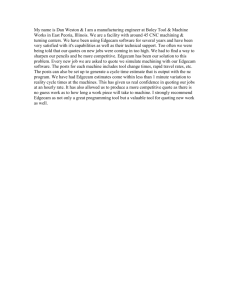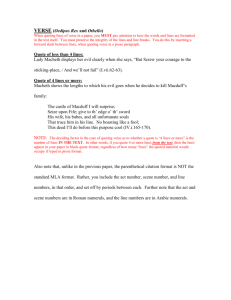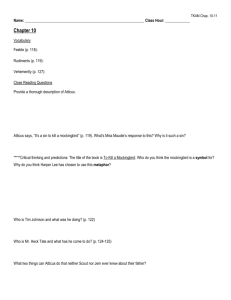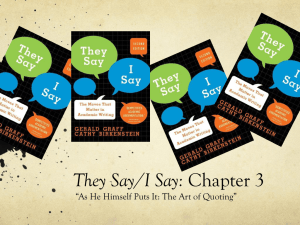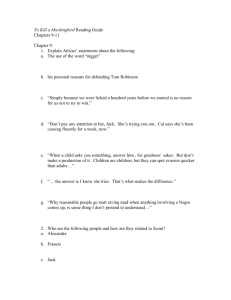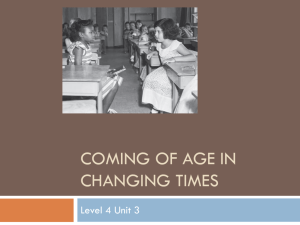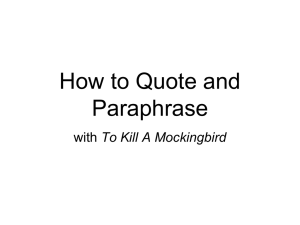Everything You Ever Wanted to Know about Quoting in an Essay
advertisement
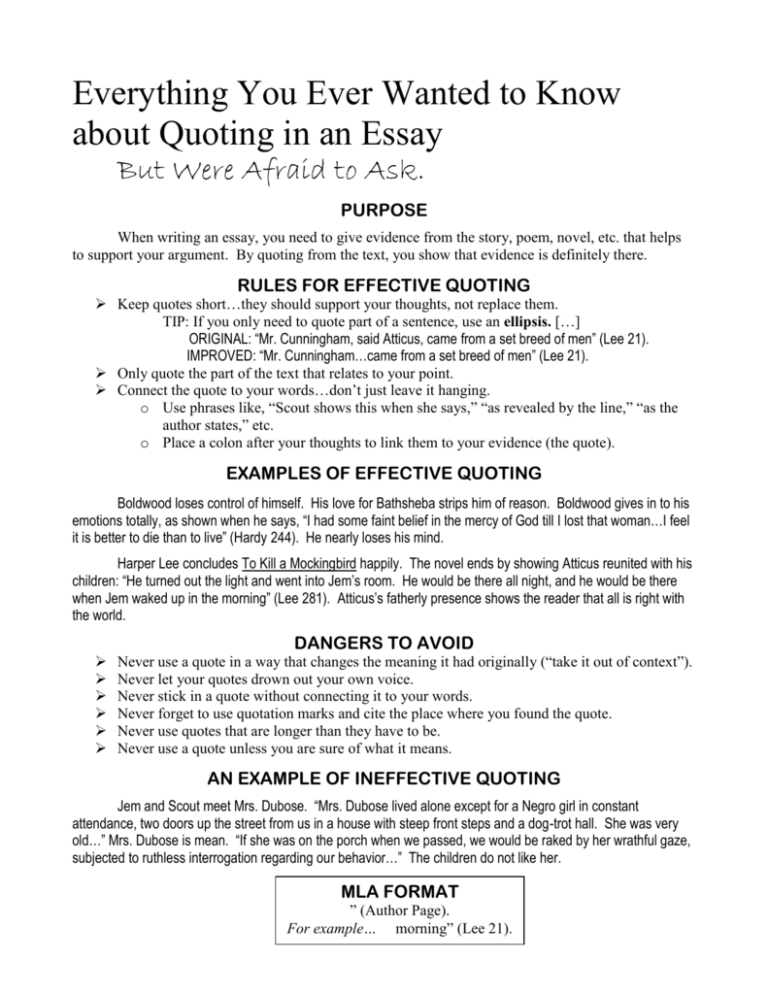
Everything You Ever Wanted to Know about Quoting in an Essay But Were Afraid to Ask. PURPOSE When writing an essay, you need to give evidence from the story, poem, novel, etc. that helps to support your argument. By quoting from the text, you show that evidence is definitely there. RULES FOR EFFECTIVE QUOTING Keep quotes short…they should support your thoughts, not replace them. TIP: If you only need to quote part of a sentence, use an ellipsis. […] ORIGINAL: “Mr. Cunningham, said Atticus, came from a set breed of men” (Lee 21). IMPROVED: “Mr. Cunningham…came from a set breed of men” (Lee 21). Only quote the part of the text that relates to your point. Connect the quote to your words…don’t just leave it hanging. o Use phrases like, “Scout shows this when she says,” “as revealed by the line,” “as the author states,” etc. o Place a colon after your thoughts to link them to your evidence (the quote). EXAMPLES OF EFFECTIVE QUOTING Boldwood loses control of himself. His love for Bathsheba strips him of reason. Boldwood gives in to his emotions totally, as shown when he says, “I had some faint belief in the mercy of God till I lost that woman…I feel it is better to die than to live” (Hardy 244). He nearly loses his mind. Harper Lee concludes To Kill a Mockingbird happily. The novel ends by showing Atticus reunited with his children: “He turned out the light and went into Jem’s room. He would be there all night, and he would be there when Jem waked up in the morning” (Lee 281). Atticus’s fatherly presence shows the reader that all is right with the world. DANGERS TO AVOID Never use a quote in a way that changes the meaning it had originally (“take it out of context”). Never let your quotes drown out your own voice. Never stick in a quote without connecting it to your words. Never forget to use quotation marks and cite the place where you found the quote. Never use quotes that are longer than they have to be. Never use a quote unless you are sure of what it means. AN EXAMPLE OF INEFFECTIVE QUOTING Jem and Scout meet Mrs. Dubose. “Mrs. Dubose lived alone except for a Negro girl in constant attendance, two doors up the street from us in a house with steep front steps and a dog-trot hall. She was very old…” Mrs. Dubose is mean. “If she was on the porch when we passed, we would be raked by her wrathful gaze, subjected to ruthless interrogation regarding our behavior…” The children do not like her. MLA FORMAT ” (Author Page). For example… morning” (Lee 21).
